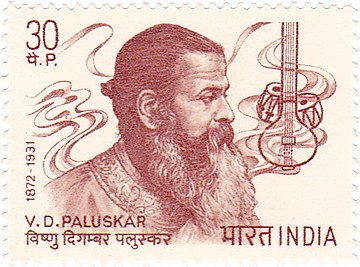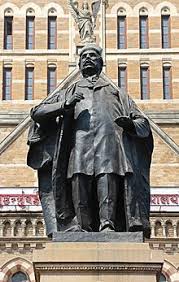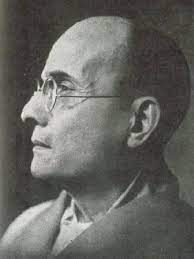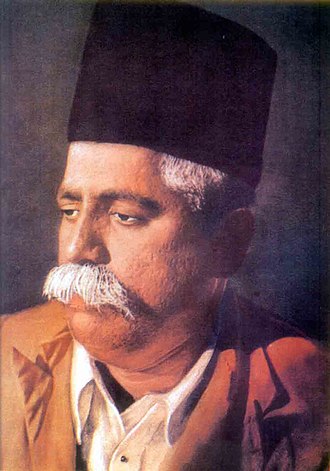Pandit Vishnu Digambar Paluskar (1872-1931) was a Hindustani classical singer. Paluskar stood up to Maulana Mohammed Ali Jauhar who opposed his musical performance in the Kakinada session of the #IndianNationalCongress in 1923
#history #heritage #music #Maharashtra

#history #heritage #music #Maharashtra


Paluskar has sung the original version of 'Raghupati Raghav Rajaram' & arranged 'Vande Mataram' India's national song. He is also credited with ensuring that #music & musicians secured the respect that they deserved.
#history
#history
This thread is based on the writings of social reformer & journalist Prabodhankar Keshav Sitaram Thackeray. Prabodhankar, the father of late #ShivSena supremo #BalThackeray wrote about Paluskar on 17 October 1942. 

Prabodhankar says that there was a time when musicians & music concerts were looked down upon by the social elite. It was considered a sin of sorts for women from so-called "good" families to develop hobbies like singing.
This changed when Paluskar launched his Gandharva Mahavidyalaya at #Mumbai (September 1908).
Paluskar held a concert in #Mumbai where women from families of judges, govt servants & barristers performed. It began with a rendition by Balakrishnabuwa Ichalkaranjikar, who was Paluskar's guru. It was a houseful event.
Pandit Paluskar had attended #Congress session at Coconada (Kakinada) in 1923. After Congress president Maulana Mohammed Ali Jauhar came to the venue accompanied by a band, Panditji and his disciples, who were waiting on the stage, began singing the 'Isha stavan' 



Mohammed Ali and his brother Shaukat Ali, formed the famous 'Ali Brothers,' and were the vanguard of the Khilafat movement. Two arterial roads in #Mumbai are named after them. 

At the Kakinada session, Maulana Mohammed Ali objected to the playing of musical instruments and questioned if this was a Hindu temple or the site of a music concert. He asked for the music to be stopped.
An angry Pandit Paluskar retorted: 'Why is isha stavan being opposed in the pandal of the Rashtra Sabha (Congress)?... if the president is so put off by musical instruments, why did he come to the venue in a procession which included a band and musicians with instruments?'
Paluskar asked why isha stavan music was being opposed. He said: 'Let's see who opposes me now.' After this, he sang his patent 'Jai Jagadish Hare' in a crescendo for five minutes. The audience was captivated. As he started singing 'Vande Mataram,' thousands stood in attention.
Prabodhankar says Pandit Vishnu Digambar Paluskar sang the isha stavan and Vande Mataram in the three days of the session and returned to #Mumbai like a victorious #Maratha warrior!
#history #Maharashtra #music #Congress
#history #Maharashtra #music #Congress
• • •
Missing some Tweet in this thread? You can try to
force a refresh

 Read on Twitter
Read on Twitter







